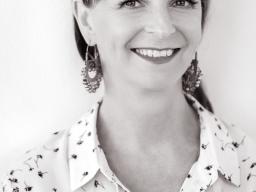Abstract
Carbon farming is an opportunity for on-going ‘untied’ income for Indigenous communities. The Australian Government through the Emissions Solution Fund buys Australian Carbon Credit Units (ACCU) for ‘lowest cost abatement’. If carbon farming demonstrates environmental, social and cultural outcomes (core benefits) as well as carbon abatement and sequestration then the voluntary market will purchase the ACCU for a premium price. Purchasing carbon with core benefits meets the Sustainable Development Goals (SDGs), Reconciliation Action Plans (RAP), Corporate Social Responsibility (CSR) and carbon offsetting of voluntary market buyers.
Until now verification of core benefits has been anecdotal and informal. The Aboriginal Carbon Foundation secured funding through the Queensland Government’s Department of Environment in 2016 to develop a rigorous and independent process to verify carbon farming core benefits. This seminar will report on experiences of undertaking this task.
The development of this framework has involved conversations, community workshops, stakeholder consultations, formal peer review and piloting in two Cape York communities: Mapoon and Kowanyama. It has also involved the creation of an industry reference group for an ASQA-approved training course in Aboriginal carbon farming and the measurement of core benefits. The research and development of this Indigenous-led approach took two years and the first verifications are planned for three Cape York communities later this year.
This Indigenous-led philosophy sees verification of core benefits by a team of Indigenous experts including rangers, Traditional Owners and community members from regions where savanna burning is implemented. This approach redefines the narrative of who is an expert.
Biographies
Rowan Foley is from the Wondunna clan of the Badtjala people, traditional owners of K’gari (Fraser Island) Queensland. Rowan is the founding CEO of the Aboriginal Carbon Foundation (AbCF) a not-for-profit company.
Rowan moved to the Northern Territory in 1989, working as a ranger at Uluru – Kata Tjuta National Park. He returned in 2005 as the Park Manager, living in Mutitjulu community for a total of six years.
The Kimberley Land Council employed Rowan as their first Land Management Officer in 1995. He established their Land and Sea Management Unit and negotiated the first Indigenous Protected Area in Western Australia.
Rowan gave a TEDx Talk in Brisbane in 2018, spoke at the UNFCCC in Bonn Germany on carbon farming in 2014 and attended the Paris Climate Agreement in 2015. The Maori Carbon Foundation established in 2018 in NZ has drawn its inspiration and guidance from the Aboriginal Carbon Foundation in Australia.
Rowan lives with his family, dog and horses in Alice Springs NT.
LisaMcMurray is the Learning and Program Development Manager at the Aboriginal Carbon Foundation. She is a consultant and practitioner with extensive experience in non-government international development and Australian Indigenous community-building initiatives.
Lisa first went to the Solomon Islands in 1994 as a volunteer and has been engaged ever since in NGO Integrated Community Development Programs and Health initiatives. In addition to the Solomons, Lisa has done work in PNG, Vanuatu, Fiji, Tonga, Cook Islands, Timor Leste, India, Malawi, and the Northern Territory and far north Queensland in Australia. Her 1998 MA thesis was titled “Renewable energy in the Solomon Islands: a panacea for urban migration”.
Location
Speakers
- Rowan Foley and Lisa McMurray
Contact
- Annette Kimber61250587
